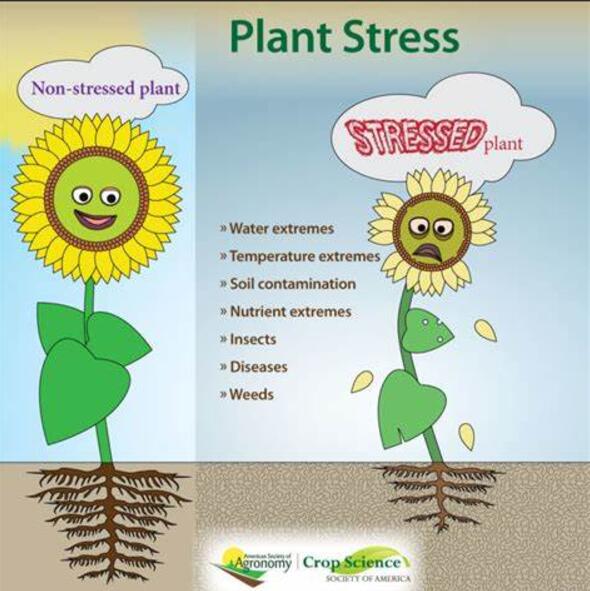利用促生根杆菌优化植物在非生物和生物胁迫条件下的抗逆性
IF 6.8
Q1 PLANT SCIENCES
引用次数: 0
摘要
全球作物生产日益受到非生物和生物胁迫因素的威胁,气候变化预计将加剧极端天气事件、干旱、盐度、重金属毒性和病原体攻击等挑战。为了维持农业生产力,越来越需要生态友好和可持续的解决方案来帮助植物应对这些压力。促进植物生长的根瘤菌(PGPRs)已成为有价值的盟友,通过各种直接和间接的机制增强植物的恢复力。通过改善养分吸收、产生缓解压力的化合物和刺激植物防御,PGPRs有助于作物更健康和更高的产量。此外,它们还为化肥和合成农用化学品提供了一种很有前途的替代品。本文综述了PGPRs在缓解非生物和生物胁迫中的多种作用,揭示了其机制及其在现代农业中的潜在应用。本文章由计算机程序翻译,如有差异,请以英文原文为准。

Optimizing plant resilience with growth-promoting Rhizobacteria under abiotic and biotic stress conditions
Global crop production is increasingly threatened by abiotic and biotic stressors, with climate change expected to worsen challenges such as extreme weather events, drought, salinity, heavy metal toxicity, and pathogen attacks. To sustain agricultural productivity, there is a growing need for eco-friendly and sustainable solutions that help plants cope with these stresses. Plant growth-promoting rhizobacteria (PGPRs) have emerged as valuable allies, enhancing plant resilience through various direct and indirect mechanisms. By improving nutrient uptake, producing stress-alleviating compounds, and stimulating plant defenses, PGPRs contributes to healthier crops and higher yields. Furthermore, they offer a promising alternative to chemical fertilizers and synthetic agrochemicals. This review explores the diverse roles of PGPRs in mitigating abiotic and biotic stress, shedding light on their mechanisms and potential applications in modern agriculture.
求助全文
通过发布文献求助,成功后即可免费获取论文全文。
去求助
来源期刊

Plant Stress
PLANT SCIENCES-
CiteScore
5.20
自引率
8.00%
发文量
76
审稿时长
63 days
期刊介绍:
The journal Plant Stress deals with plant (or other photoautotrophs, such as algae, cyanobacteria and lichens) responses to abiotic and biotic stress factors that can result in limited growth and productivity. Such responses can be analyzed and described at a physiological, biochemical and molecular level. Experimental approaches/technologies aiming to improve growth and productivity with a potential for downstream validation under stress conditions will also be considered. Both fundamental and applied research manuscripts are welcome, provided that clear mechanistic hypotheses are made and descriptive approaches are avoided. In addition, high-quality review articles will also be considered, provided they follow a critical approach and stimulate thought for future research avenues.
Plant Stress welcomes high-quality manuscripts related (but not limited) to interactions between plants and:
Lack of water (drought) and excess (flooding),
Salinity stress,
Elevated temperature and/or low temperature (chilling and freezing),
Hypoxia and/or anoxia,
Mineral nutrient excess and/or deficiency,
Heavy metals and/or metalloids,
Plant priming (chemical, biological, physiological, nanomaterial, biostimulant) approaches for improved stress protection,
Viral, phytoplasma, bacterial and fungal plant-pathogen interactions.
The journal welcomes basic and applied research articles, as well as review articles and short communications. All submitted manuscripts will be subject to a thorough peer-reviewing process.
 求助内容:
求助内容: 应助结果提醒方式:
应助结果提醒方式:


